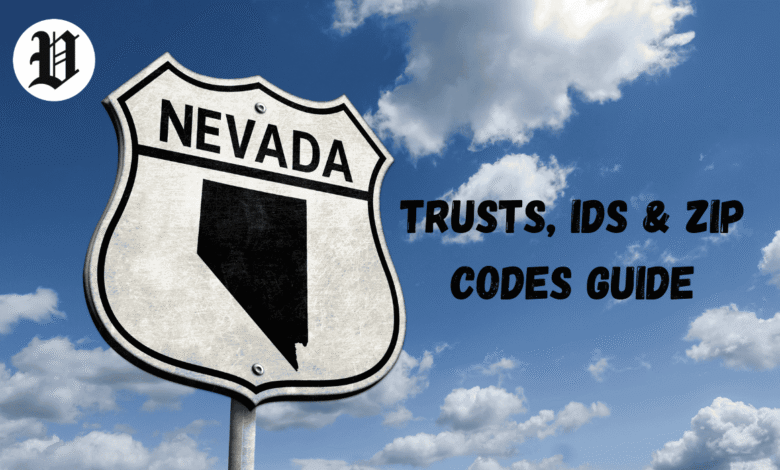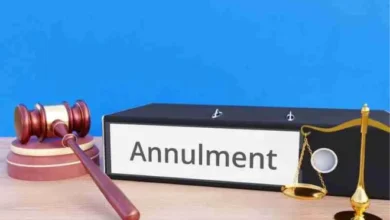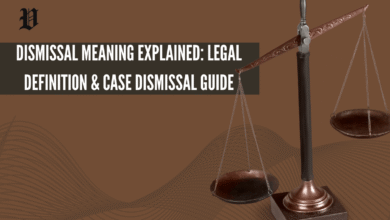Why Nevada Trusts, IDs, and Local Codes Are Essential for Residents

Living in Nevada feels like standing at the crossroads of opportunity and responsibility. Whether you’re soaking up the vibrant energy of Las Vegas, settling into the family-friendly suburbs of Henderson, or enjoying the cultural charm of Reno, understanding the state’s legal and administrative systems is key to thriving here. Nevada trusts are a cornerstone for protecting your wealth and planning your legacy, offering peace of mind against life’s uncertainties like disputes or divorce. Meanwhile, getting your Nevada DMV Real ID squared away ensures you’re ready for travel or official business without a hitch. And those zip codes and area codes? They’re the unsung heroes that keep everything from mail delivery to local services running smoothly in places like Clark County.
If you’re a longtime resident sorting out beneficiary rights or a newcomer figuring out how to get a Nevada ID, this guide is your roadmap. Nevada’s trust laws are a magnet for folks looking to secure their assets, thanks to their flexibility and strong protections. Paired with clear DMV processes and well-organized postal codes, knowing these details helps you make smart, confident choices.
In this in-depth article, we’ll walk through trust basics, trustee responsibilities, beneficiary rights, Real ID requirements, key Nevada zip codes and area codes, and where to find free legal help. By the end, you’ll feel ready to tackle these essentials with ease.
Trust Basics in Nevada: Revocable vs. Irrevocable Trusts and Key Roles
A trust is like a safety net for those assets, ensuring they’re managed and passed on exactly how you want. Governed by Nevada Revised Statutes (NRS) Chapter 163, Nevada trusts are popular for their strong asset protection and tax benefits.
A trust revolves around three main players: the settlor, who sets it up and puts assets into it; the trustee, who takes care of those assets; and the beneficiary, who reaps the rewards. The settlor writes the rulebook, laying out how and when assets get distributed.
Now, let’s break down the two main types of trusts in Nevada: revocable and irrevocable. A revocable trust is like a living document—you can tweak or even cancel it while you’re alive. This flexibility is perfect for someone in Las Vegas whose business ventures or family situation might change. Say you want to add a new property to the trust or adjust who gets what; a revocable trust lets you do that without a fuss. When you pass away, it typically locks in as irrevocable, skipping the probate process for a smooth handover.
An irrevocable trust, on the other hand, is set in stone once you sign it. Why choose it? Because it’s a fortress for your assets, shielding them from creditors, lawsuits, or even divorce claims. Nevada’s laws shine here, allowing unique setups like self-settled spendthrift trusts, where you can be both settlor and beneficiary while keeping assets safe. This is a go-to for high-net-worth folks in Clark County looking to protect their wealth from unexpected disputes.
Choosing between revocable and irrevocable comes down to what you value more: control or protection. It’s a big decision, so sitting down with a professional to navigate Nevada trust laws is a smart move to avoid any missteps that could mess with taxes or legal outcomes.
Revocable vs. Irrevocable Trusts: A Side-by-Side Look
To make it easier to weigh your options, here’s a table comparing revocable and irrevocable in trusts Nevada:
| Aspect | Revocable Trust | Irrevocable Trust |
|---|---|---|
| Modifiability | Can be changed or revoked by settlor | Locked in once established |
| Asset Protection | Limited; creditors can reach assets | Strong; shields from creditors and lawsuits |
| Tax Implications | Assets stay in settlor’s taxable estate | Assets removed from settlor’s estate |
| Probate Avoidance | Yes, becomes irrevocable at death | Yes, skips probate entirely |
| Ideal For | Flexibility in estate planning | Long-term asset protection and tax perks |
| Common Use in Nevada | Family homes in Reno | Business assets in Las Vegas |
This table lays out why one might suit your needs better than the other.
Duties and Responsibilities of a Trustee in Nevada: Stepping Up to the Plate
Being a trustee in Nevada is a big deal—it’s like being entrusted with someone’s life savings or family legacy. Under NRS Chapter 164, trustees have serious responsibilities to manage assets with care and fairness, always putting beneficiaries first and steering clear of personal gain.
Here’s what a trustee’s job looks like in Nevada:
Loyalty and Fairness: A trustee has to play fair, treating all beneficiaries equally. Imagine a trust for a family in Reno with multiple kids—the trustee can’t play favorites by giving one child more than another without clear instructions in the trust.
Smart Management: Trustees need to handle assets wisely, spreading investments to avoid big risks and keeping meticulous records. They might work with financial advisors to follow Nevada’s “prudent investor rule,” ensuring the trust grows safely.
Keeping Everyone in the Loop: Transparency is key. Trustees must provide clear updates on trust activities, especially when a revocable trust turns irrevocable after the settlor’s passing. Skipping this step can spark disputes among beneficiaries.
Handling Assets: Whether it’s selling a property, managing rentals, or making distributions, trustees follow the trust’s playbook. For example, a trustee overseeing a Henderson rental property ensures the income goes to beneficiaries without taking reckless shortcuts.
Messing up these duties can lead to big trouble, like being removed or facing lawsuits. Nevada takes trustee accountability seriously, so documenting every decision is a must. If you’re tapped to be a trustee, talking to a lawyer early on can save you from headaches down the road.
Beneficiary Rights in Nevada: Knowing What’s Yours
As a beneficiary of a Nevada trust, you’ve got rights that ensure the trust does what it’s supposed to. NRS Chapter 163 gives you tools to hold trustees accountable and protect your interests, whether you’re dealing with a family dispute, a divorce, or property issues.
Here’s what you’re entitled to as a beneficiary:
Access to Information: You can ask for trust documents and financial reports to see what’s going on. While Nevada doesn’t require full disclosure to everyone unless the trust says so, this transparency helps you catch any funny business.
Calling Out Mismanagement: If the trustee isn’t doing their job—say, making risky investments or playing favorites—you can take them to court to get them removed or seek compensation.
Divorce Protection: Nevada’s community property laws can complicate things in a divorce. If the trust is irrevocable and holds separate property, it might keep assets out of the divorce settlement. But if it’s a revocable trust with community property, those assets could be split 50/50 under NRS Chapter 123. For instance, a Las Vegas couple’s joint trust might get divided, but an irrevocable trust set up before marriage could stay safe.
Property Claims: You have a right to whatever the trust promises you, whether it’s cash, property, or income. Spendthrift clauses in Nevada trusts can even block creditors from grabbing your share, but disputes still need to follow the trust’s terms.
Divorce can also trigger automatic changes, like revoking a spouse’s beneficiary status, so keep an eye on those details. If something feels off, acting fast—whether through mediation or court—can protect what’s yours.
Nevada DMV and Real ID: Getting Your ID Right
Getting your Nevada ID or Real ID sorted is a must, especially since the federal government started enforcing Real ID requirements for domestic flights and federal facilities on May 7, 2025. A Real ID, marked with a gold star, is your ticket to hassle-free travel and access. Nevada’s DMV makes it straightforward, but you need to know the drill.
What You Need for a Real ID
You’ll have to visit a DMV office in person for your first Real ID—online isn’t an option. Here’s what to bring:
| Category | Examples of Acceptable Documents |
|---|---|
| Proof of Identity | Original or certified birth certificate, U.S. passport, or naturalization certificate. Name changes need marriage certificates or court orders. |
| Proof of Social Security | Social Security card, W-2 form, or pay stub with full SSN. |
| Proof of Nevada Residency (Two Documents) | Utility bill, lease agreement, or bank statement with your Nevada address (P.O. boxes don’t count). |
| Additional for Driver’s License | Proof of driving ability if upgrading. |
Expect to pay around $42.25 for a driver’s license Real ID.
Applying and Renewing
Book an appointment at a DMV office and bring original documents—photocopies won’t cut it. If you’re renewing, you might be able to do it online if you’re eligible, but Real ID upgrades mean showing up in person every eight years.
Lost or Stolen IDs
If your ID goes missing, report it to the police if it was stolen, then head to the DMV for a duplicate with your identity proof. The fee’s about $18, and non-Real ID duplicates can often be done online.Don’t get caught without a compliant ID—get this done to keep your travel plans smooth.
Nevada Zip Codes and Area Codes: Navigating Las Vegas, Henderson, and Beyond
Nevada’s zip codes and area codes are like the state’s GPS, guiding everything from mail to emergency services. In Clark County, home to Las Vegas and Henderson, you’ll see area codes 702 and 725 (the latter added in 2014 to keep up with demand). Up in Reno and northern Nevada, 775 is the main code.
Here are some standout zip codes:
Las Vegas Zip Codes: Think 89101 for downtown’s bustling vibe or 89118 for the southwest’s industrial zone.
Henderson Zip Codes: Like 89052 in the upscale Anthem area or 89074 in family-friendly Green Valley.
Clark County Zip Codes: Cover the above, plus spots like 89030 in North Las Vegas.
Reno Zip Codes: Such as 89503 in central Reno, near the university and cultural hotspots.
Check out this table for clarity:
| Zip Code | City/Area | County | Area Code | Notes |
|---|---|---|---|---|
| 89101 | Las Vegas (Downtown) | Clark | 702/725 | Historic district, business hub. |
| 89118 | Las Vegas (Southwest) | Clark | 702/725 | Commercial and industrial zone. |
| 89052 | Henderson (Anthem) | Clark | 702/725 | Upscale residential with golf communities. |
| 89074 | Henderson (Green Valley) | Clark | 702/725 | Family-friendly suburbs. |
| 89503 | Reno (Central) | Washoe | 775 | University area, cultural spots. |
| 89030 | North Las Vegas | Clark | 702/725 | Growing residential. |
| 89135 | Las Vegas (Summerlin) | Clark | 702/725 | Master-planned community. |
Always double-check with USPS to ensure accuracy.
More Zip Codes in Northern Nevada
For those up north, here’s another table with key Reno-area zip codes:
| Zip Code | City/Area | County | Area Code | Notes |
|---|---|---|---|---|
| 89501 | Reno (Downtown) | Washoe | 775 | Business and entertainment district. |
| 89502 | Reno (Southeast) | Washoe | 775 | Industrial and residential mix. |
| 89509 | Reno (Southwest) | Washoe | 775 | Affluent neighborhoods. |
| 89511 | Reno (South) | Washoe | 775 | Suburban expansion areas. |
| 89431 | Sparks | Washoe | 775 | Adjacent to Reno, family-oriented. |
This table helps northern Nevadans pinpoint their area.
Free Legal Help and Lawyer Consultations in Nevada
Need help with a trust or DMV issue but worried about costs? Nevada’s got your back with resources for free or low-cost legal support:
Nevada Legal Services: Offers free civil legal aid for low-income folks, covering trusts and family law.
Legal Aid Center of Southern Nevada: Provides pro bono consultations in Las Vegas, including phone-based Ask-A-Lawyer sessions.
Northern Nevada Legal Aid: Focuses on Reno and northern areas, helping with disputes and beneficiary rights.
State Bar of Nevada Lawyer Referral Service: Connects you with attorneys for affordable initial consultations—call 702-382-0504.
Income often determines eligibility, so reach out to see if you qualify
Your Top Questions on Nevada Trusts, Real ID, and Zip Codes
What’s the difference between revocable and irrevocable trusts in Nevada?
Revocable trusts can be tweaked or canceled; irrevocable ones are fixed but offer stronger asset protection.
Can a trustee be removed in Nevada?
Yes, if they’re mismanaging things—beneficiaries can ask a court to step in.
What documents do I need for a Nevada Real ID?
Bring proof of identity, Social Security, and two residency documents to the DMV.
How do I renew my Nevada ID?
Online if you’re eligible; Real ID upgrades need an in-person visit every eight years.
What area code serves Las Vegas?
702 and 725, which work together as an overlay.
Is 89101 a Las Vegas zip code?
Yup, it covers the downtown area.
Can trusts protect assets in a Nevada divorce?
Irrevocable trusts often do, but community property in revocable trusts might get split.
Where can I find free legal help for trusts in Nevada?
Check out Nevada Legal Services or local aid centers.
What if I lose my Nevada ID?
Report theft to police, then get a duplicate at the DMV with identity proof for about $18.
How do zip codes affect DMV address changes?
Update your address quickly, as zip codes impact rates and services.
Take Charge of Your Nevada Trusts, IDs, and Local Needs
Getting a handle on Nevada trusts, beneficiary rights, DMV Real ID requirements, and zip/area codes sets you up to thrive in the Silver State. Whether you’re crafting a revocable trust for flexibility, securing a Real ID for travel, or double-checking your zip code for mail, taking action now saves stress later. Reach out to a lawyer for tailored trust advice, swing by the DMV to update your ID, and confirm your zip code for smooth correspondence. Don’t wait—tap into Nevada’s free legal resources and take control of your future today.





One Comment